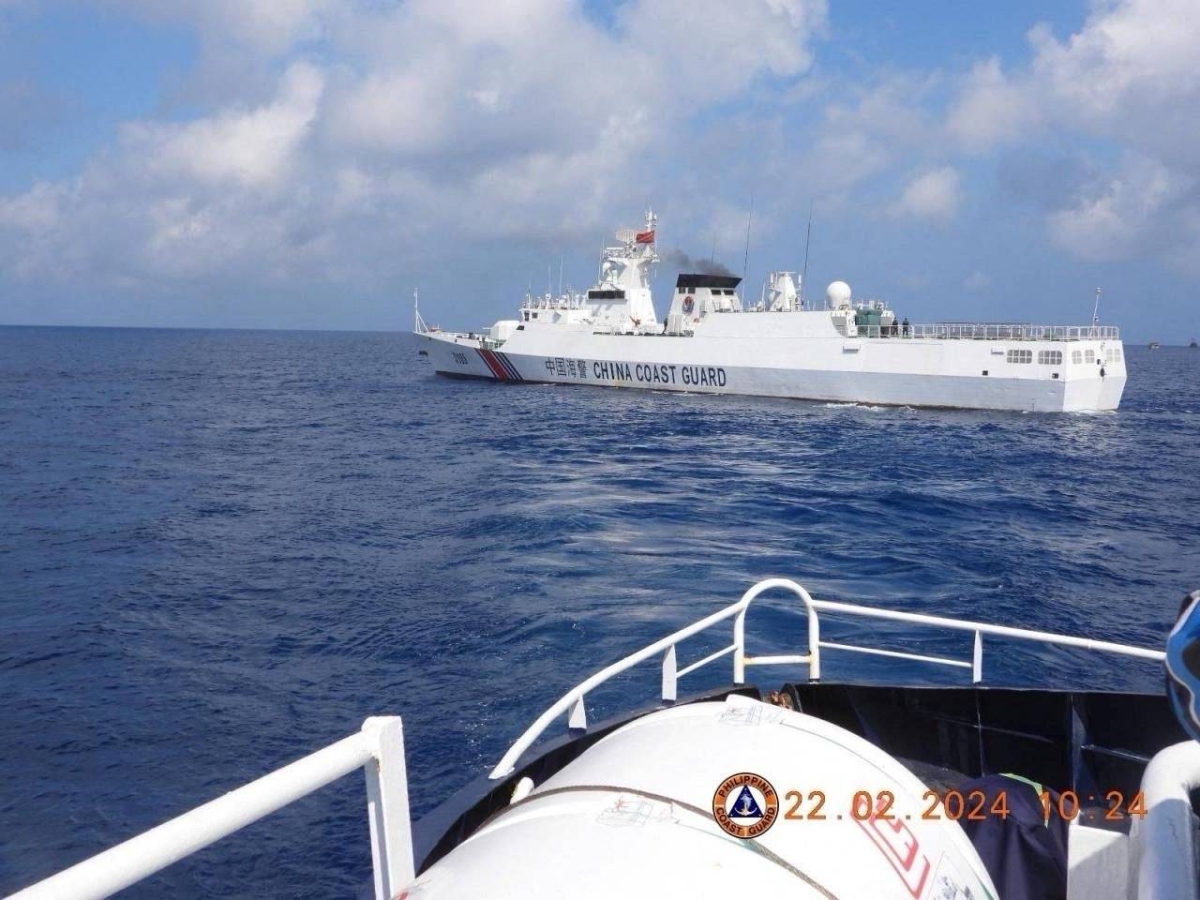China’s Appeal and Growing Tension in the South China Sea
China’s appeal to the United States to avoid provoking conflict in the South China Sea is a reflection of the growing tension in the disputed waters. The Chinese embassy in Manila has expressed concern over recent remarks made by US Secretary of State Antony Blinken, who reaffirmed America’s commitment to defend the Philippines. China sees this as a thinly veiled threat and believes that the US is trying to invoke mutual defense treaty obligations in case of an armed attack against Filipinos in the South China Sea.
The South China Sea Dispute
The South China Sea has long been a contentious issue, with multiple countries claiming sovereignty over various islands and maritime territories. China, in particular, has been assertive in its claims and has built artificial islands and military installations in the area. This has raised concerns among neighboring countries and has led to increased military presence and tensions in the region.
US Involvement in the South China Sea
The United States has been actively involved in the South China Sea dispute, asserting its commitment to freedom of navigation and maintaining stability in the region. The US Navy regularly conducts freedom of navigation operations, challenging China’s excessive maritime claims. This has further strained the already fragile relationship between the two superpowers.
China’s Desire for Control and Dominance
China’s call for the US to refrain from instigating trouble in the South China Sea is a clear indication of its desire to maintain control and dominance in the region. China sees any US involvement as interference and a threat to its territorial claims. By criticizing Blinken’s remarks as a thinly veiled threat, China is attempting to portray itself as the victim and the US as the aggressor.
Global Concerns
The South China Sea dispute is not only a regional issue but also a global concern. The South China Sea is a vital waterway through which a significant amount of international trade passes. Any escalation of conflict in the region could have severe consequences for global trade and security.
Call for Restraint and Peaceful Resolutions
It is crucial for all parties involved to exercise restraint and seek peaceful resolutions to the South China Sea dispute. Diplomatic negotiations, dialogue, and adherence to international laws and norms should be the guiding principles in resolving the territorial claims. The international community, including the United States, should play a constructive role in facilitating dialogue and promoting stability in the region.
China’s Perspective on US Actions
In conclusion, China’s perspective on the US actions in the South China Sea is rooted in its belief that it is the US, not any other nation, that poses a threat to peace and stability in the region. China firmly believes that its actions in the South China Sea are well within the bounds of international law and that the US and the Philippines should not interfere in the maritime issues between China and its neighboring countries.
US Concerns and Misrepresentations
However, Secretary Blinken’s accusations of China’s aggressive actions in the South China Sea are not without merit. The construction of artificial islands, militarization of these islands, and the harassment of fishing vessels and naval ships from other countries have raised concerns among the international community. These actions not only violate international law but also threaten the stability and security of the region.
Complexity of the South China Sea Dispute
The South China Sea dispute is a complex issue involving multiple claimant states with competing territorial claims and overlapping maritime boundaries. The historical, legal, and strategic perspectives of each party further complicate the resolution process.
The Importance of Diplomatic Efforts and International Cooperation
The international community, including regional organizations and neighboring countries, plays a crucial role in facilitating dialogue and promoting stability in the South China Sea. By encouraging open and transparent communication, the complexities of the dispute can be navigated, and a peaceful resolution can be achieved.
Source: The Manila Times








